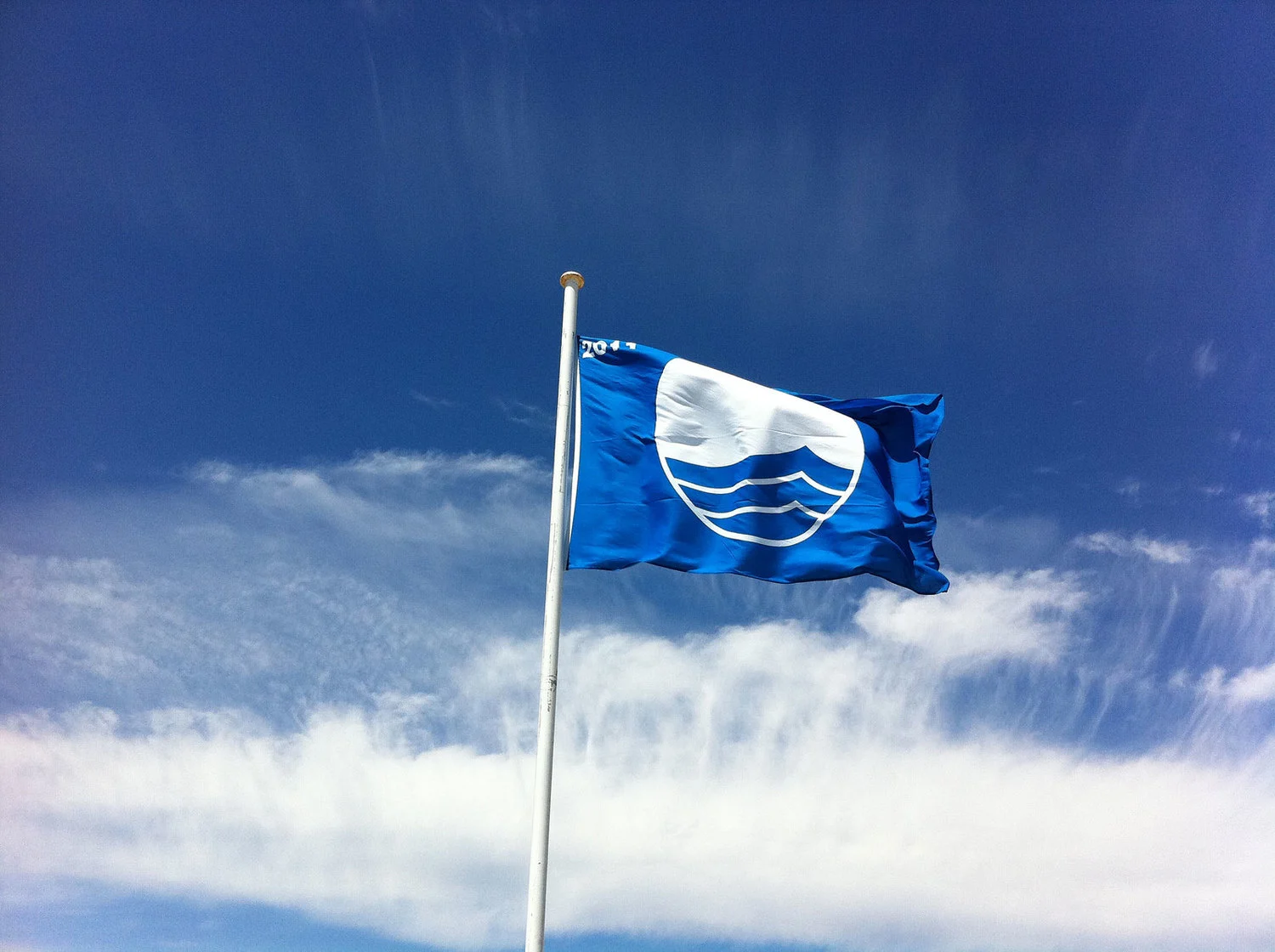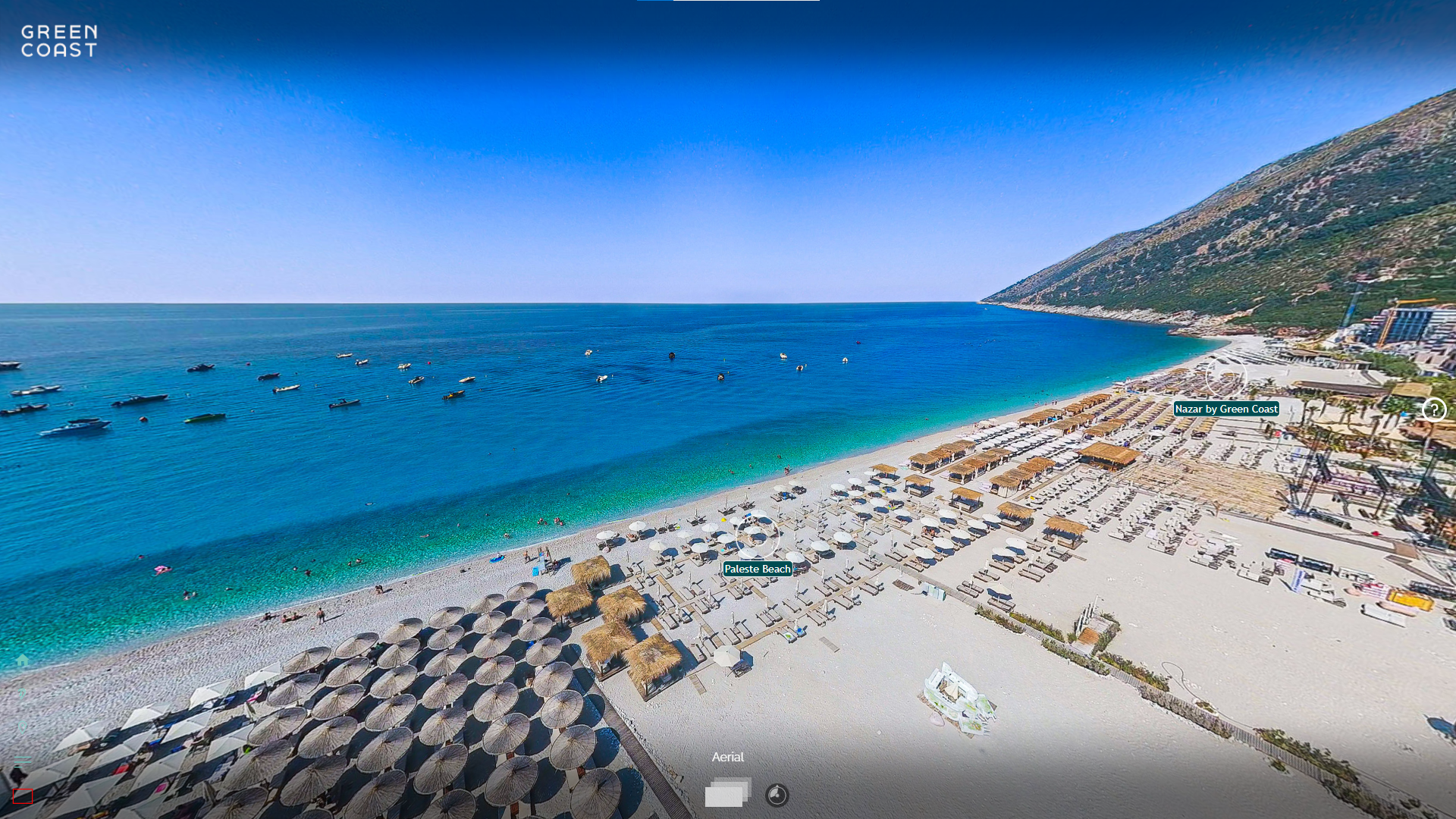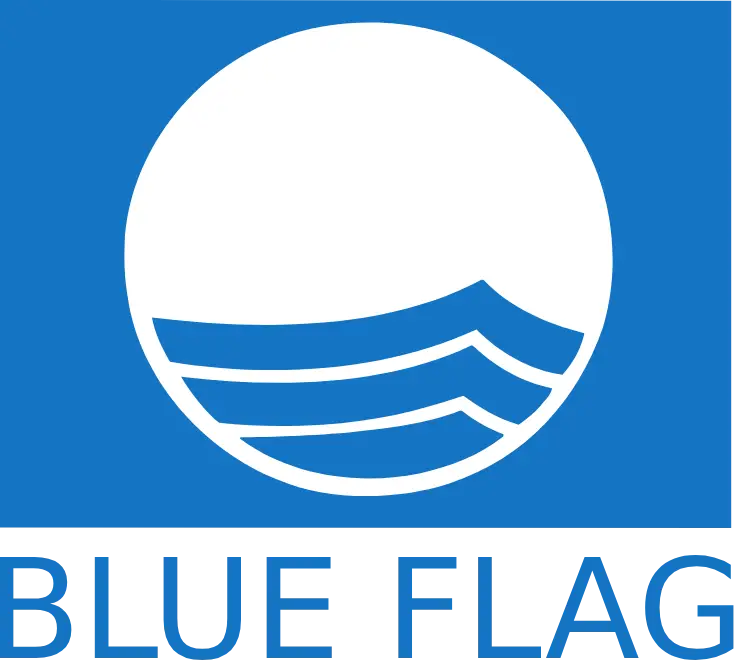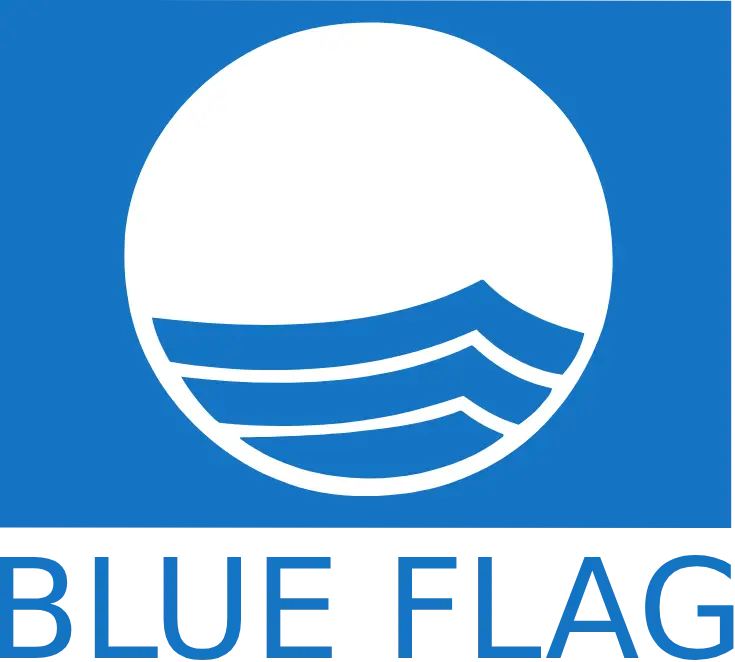What is Blue Flag?
Blue Flag is a world-renowned eco-label awarded to beaches, marinas, and sustainable tourism boats. It ensures compliance with strict environmental, educational, safety, and accessibility criteria. It aims to raise awareness about the importance of environmental conservation and sustainable tourism, while promoting clean, safe, and eco-friendly beaches.
The criteria for the Blue Flag program cover a variety of areas, including water quality, environmental management, safety, and accessibility. To receive the Blue Flag, sites must meet strict standards in these areas and undergo regular inspections. The program has grown over the years, and now Blue Flag is recognized in more than 50 countries around the world.


Mission of Blue Flag
- Promote and participate in environmental education programmes for the users of beaches, marinas and boating operators.
- Implement sound safety and environmental management systems.
- Monitor environmental conditions to reduce the impact of human activity at the beaches, at the marinas and by boating operators.
- Commit to partnerships and collaborative action to promote the sustainable development of tourism.
History of Blue Flag
Established in 1987, the Blue Flag program operates in over 50 countries, promoting sustainable tourism and environmental awareness.The Blue Flag program was launched in 1987 by the Foundation for Environmental Education (FEE) as a way to recognize beaches, marinas, and sustainable boating tourism operators worldwide that meet high standards of environmental responsibility. The program has expanded beyond beaches to include marinas and boating tourism operators, further promoting sustainability across water-based activities.


Why Blue Flag Matters
- Overall, Blue Flag has become one of the leading eco-certification programs globally, contributing significantly to the protection of marine and coastal ecosystems.
- The Blue Flag program encourages the education of both visitors and local communities about the importance of environmental protection. The flag is considered a symbol of environmental excellence, and its presence often boosts local tourism by attracting eco-conscious visitors.








